CHIAfE+VRES, Belgium - Teams of 'ambassadors' will soon be representing the ChiAfA..vres Garrison and the American community in the cities and villages neighboring ChiAfA..vres Air Base, Caserne Daumerie and Supreme Headquarters Allied Powers Europe.
John Paugh, the ChiAfA..vres Garrison manager recently approved the new concept as he believes it will reinforce ties and confidence among the workforce and with the local population.
"Our focus is on generating better understanding between Americans and Belgians at the workplace and in the local community," explained Paugh. "We want representatives of both nations to share their cultures, discover new things and learn together.
"In the long term, this will bring more cohesion and camaraderie within the workforce and a better integration of the military community in the local area," he said.
According to Paugh, host nation and community relations are a part of any garrison's work overseas.
Garrison officials rely on their host nation counterparts daily to perform their mission. Government representatives, emergency responders, medical experts and community leaders are critical to the quality of life, well-being, safety and security of the American communities.
The program is rooted in the garrison's strategic communications plan and community relations program.
"Those are very successful at the leader's level," said ChiAfA..vres Garrison Public Affairs Officer Cis Spook. "We do very well when it comes to senior leader interaction but this new initiative is about our workforce relations and about bonding with the local citizens."
Although the public affairs office will spearhead the new outreach program, it will be based on volunteers who will turn themselves into 'ambassadors of good will.'
Once the Belgian and U.S. volunteers have been identified, they will be paired up based on the city or village they live in. The teams will then meet and decide on their objectives, although the first step should be a meeting with the city officials. For that meeting, they will receive an endorsement letter from the public affairs office, explaining the purpose of the program.
The new initiative stems from the general idea that being assigned to a new country that has different traditions, a different language and a different set of laws can be challenging and may generate a certain level of uneasiness. Conversely, working for a foreign government in your own country can present its own challenges.
According to Spook, the teams of ambassadors will help take away some of the mystery that surrounds the military community in the eyes of the local people. "'People who work at ChiAfA..vres and SHAPE want to be involved in the local area and are a part of your neighborhood,' should be one of the key messages the ambassadors will deliver," she said.
"Research and past experiences show that the outreach effort will be well received thanks to almost 45 years of military presence in the area, a positive economic impact and general feelings of gratitude dating back to both world wars," said Spook. Even in the smallest villages, there is already a positive feeling toward the military.
The main objective is to obtain and share information, to bond with local citizens and to improve workforce relations.
The ambassador's activities can cover any aspect of day-to-day life: culture, history, schools, entertainment, and road repair or protection of the environment.
A group may want to take a Soldier to a Belgian elementary school to explain what it is like to be in the Army. Whereas, another may prefer to write a story about a local tradition and another could discuss a major traffic issue in their town.
Although in its early stages, the program is already generating some interest.
"I think it could allow two communities - that are at the same time so close to each other and so different from one another - to get to know each other better," said Jean-FranAfASois Canon, the manager of the directorate of logistics' Uncle Sam's Store on ChiAfA..vres Air Base.
Canon has been a U.S. government employee for more than 26 years and plays an active part in the social life of Quevaucamps, the village he has lived in for many years.
Because he regularly shares information with colleagues and submits material for the Gazette, he would consider becoming an ambassador.
"I would volunteer if that does not mean attending too many long meetings," he said. "I would love to share some of the traditions in my village.
"There are many simple things we could do to make the program successful, such as partnerships with cultural centers or tourism offices," he added.
Canon also believes that a lot can be done internally to inform the workforce of incoming and outgoing host nation personnel. He thinks that success of the program will entail good follow up of the actions, particularly because Americans rotate in and out so quickly.
Dany Godefroid, a general supply specialist at the directorate of logistics, also expressed interest in the program.
"I think this is doable, provided we get motivated people from both nations involved who are willing to make the time to do this," he said. "I think it would be a good idea to provide information and encourage American participation to local events, with explanations provided by their Belgian colleagues.
Yumi Takushi was the first to formally volunteer for the outreach program. She and her husband moved from North Carolina to Belgium in July 2009. This was not their first tour in Europe, as her husband had already served a three-year tour in Mannheim and Stuttgart, Germany.
"I had learned quite some German during that tour and even came back by myself for three months to learn more of that language," she remembered.
Since she had enjoyed her German experience so much, Takushi did not go through a huge cultural shock when she arrived in Belgium.
"I felt a little bit like being in the middle of farmland but the weather was nice and being in Belgium was exciting," she said. "I've been taking French classes twice a week since August and now I can buy things at the bakery and make my way around. My frustration is I cannot read anything yet."
Armed with their previous European experience, Takushi and her husband decided to live in a town where everything is within walking distance and where public transportation is convenient.
As they were house hunting, she fell in love with the town of Soignies. Now, they are settled in their new home and she is ready to do things.
"I want to get involved locally and to meet people so I learn about their culture," she said.
Takushi believes that the ambassador program will be very helpful, particularly because it can help those who are self-conscious about the language. Having Belgian colleagues and friends will help them overcome that. She and her fellow ambassador already have a plan: they will recruit volunteers who also live in Soignies to join the team, introduce themselves to the mayor and write a story about the program in a Belgian newspaper.
"Later on, we also want to bring a service member to a local school. I'd even love to simply have some help talking to my neighbors," she said.
The new ambassador of good will is looking forward to her role in bringing people together and firmly believes she will be successful. "Americans want to meet Belgian people but they don't know how or they're shy. The people who are not shy can open those doors for them," she said.
The ChiAfA..vres Garrison manager is also optimistic for the new initiative.
"Partnering Belgians and Americans up to bridge to the host nation community will build new relationships and get us integrated and involved," he said. Another benefit he sees is in work relations.
"It will give our people a better mutual understanding and generate camaraderie and cohesion within the workforce," he concluded.
The program is open to all civilians, military or family members who want to make a difference, both Belgians and Americans. For more information or to volunteer, contact ChiAfA..vres Garrison Public Affairs at DSN 361-5419, civilian 068-27-5419 or email dlima-e-beneluxpao@eur.army.mil.
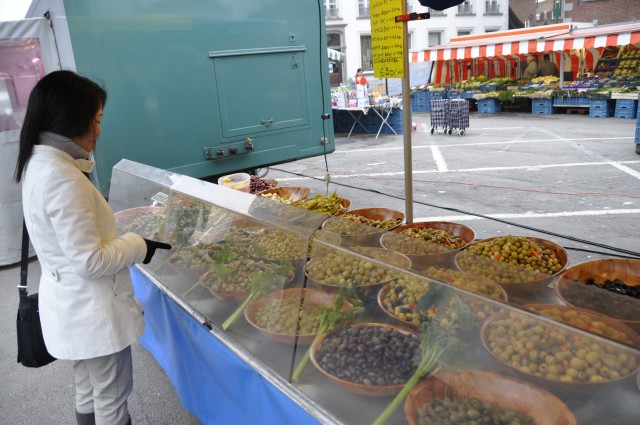
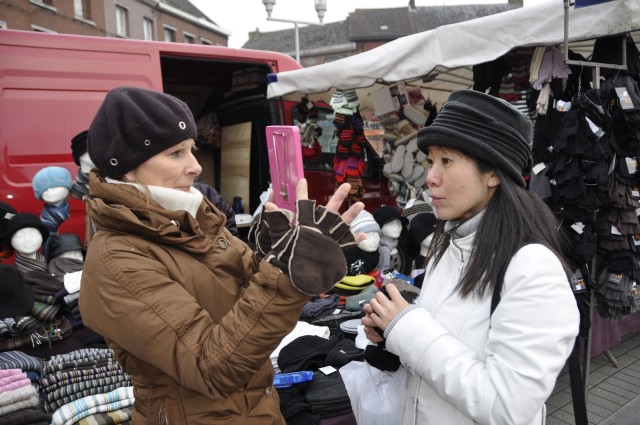
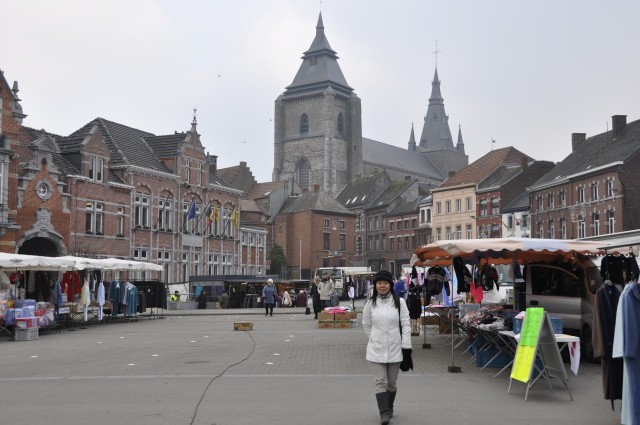
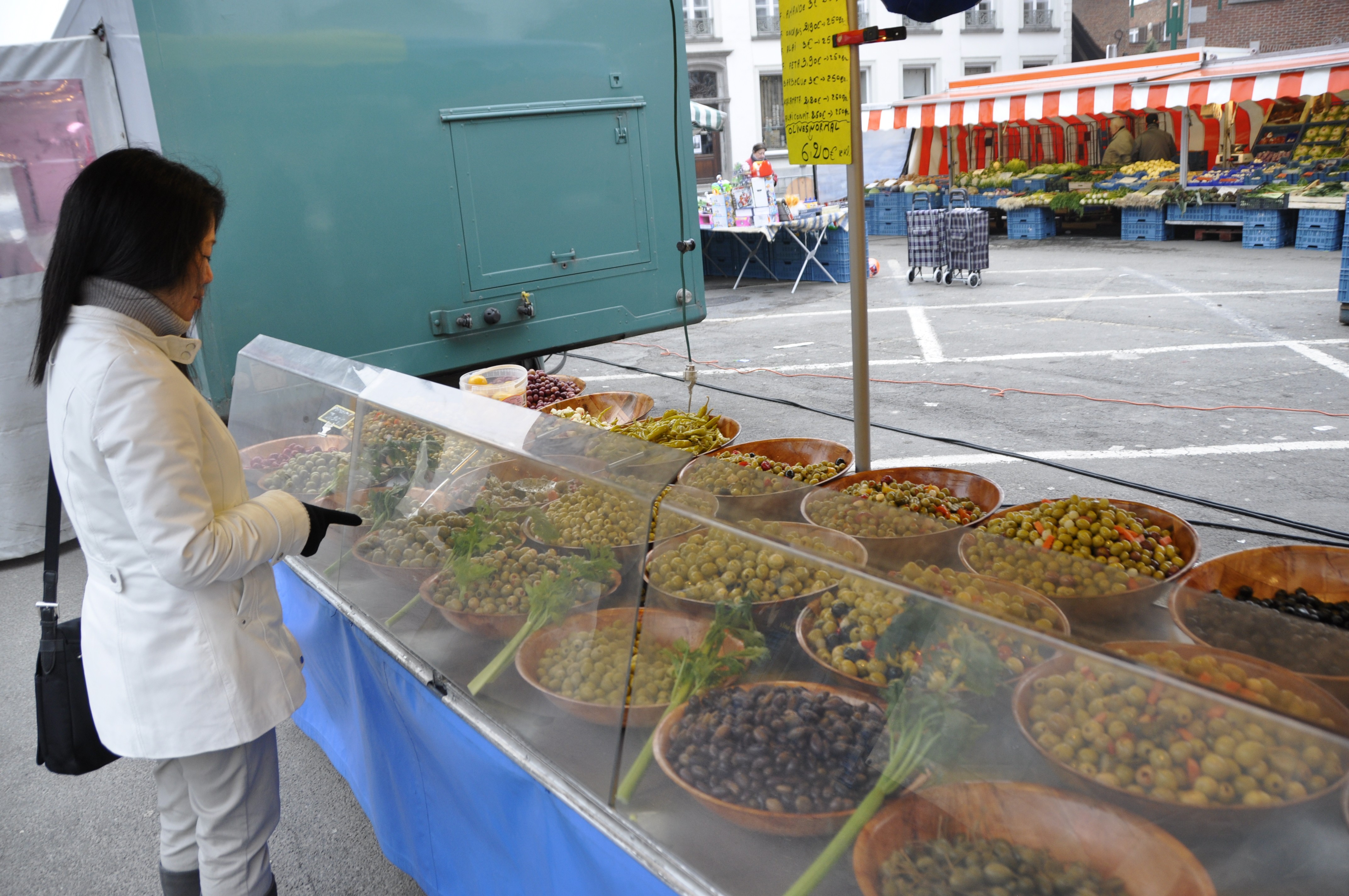
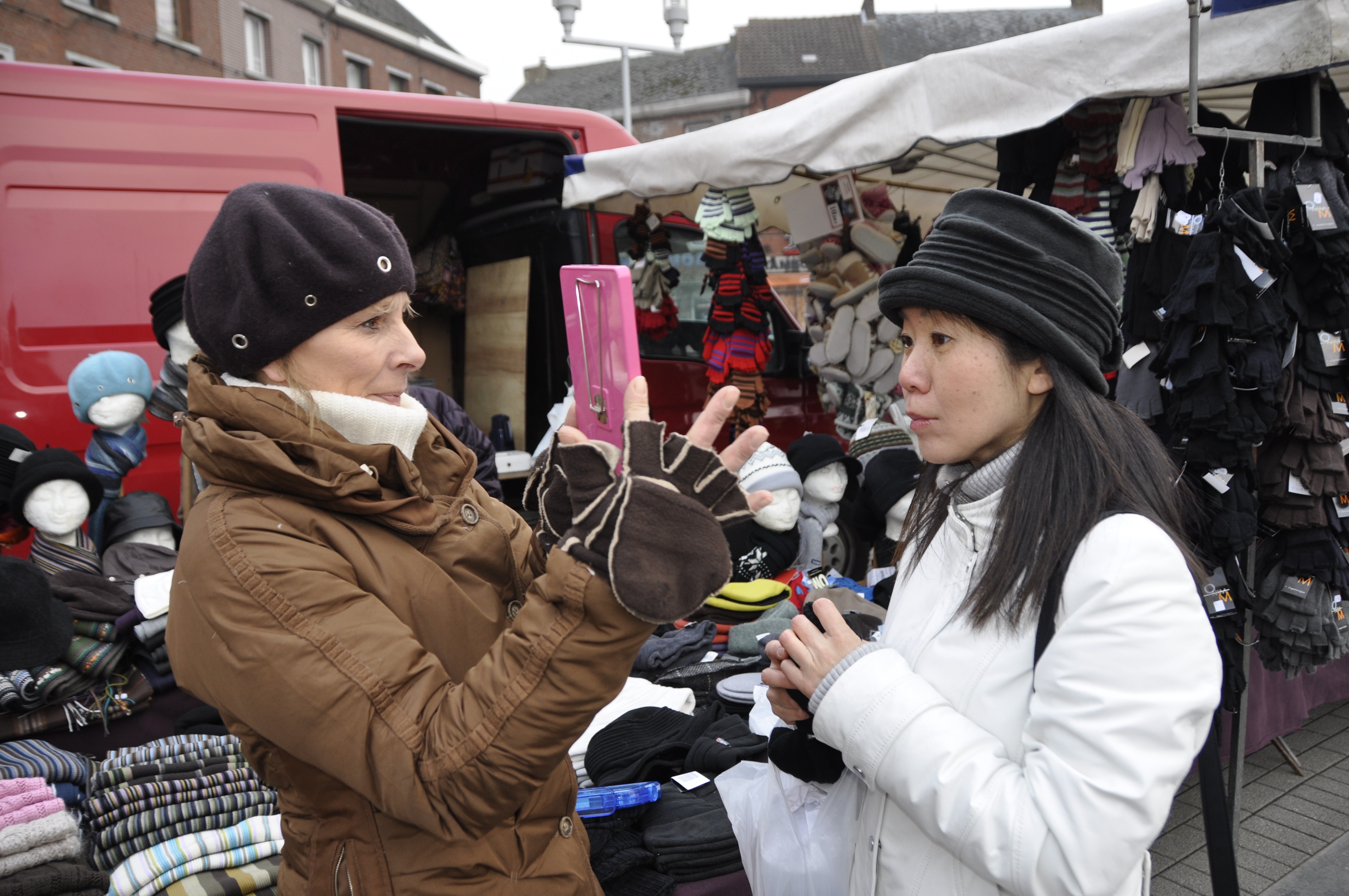
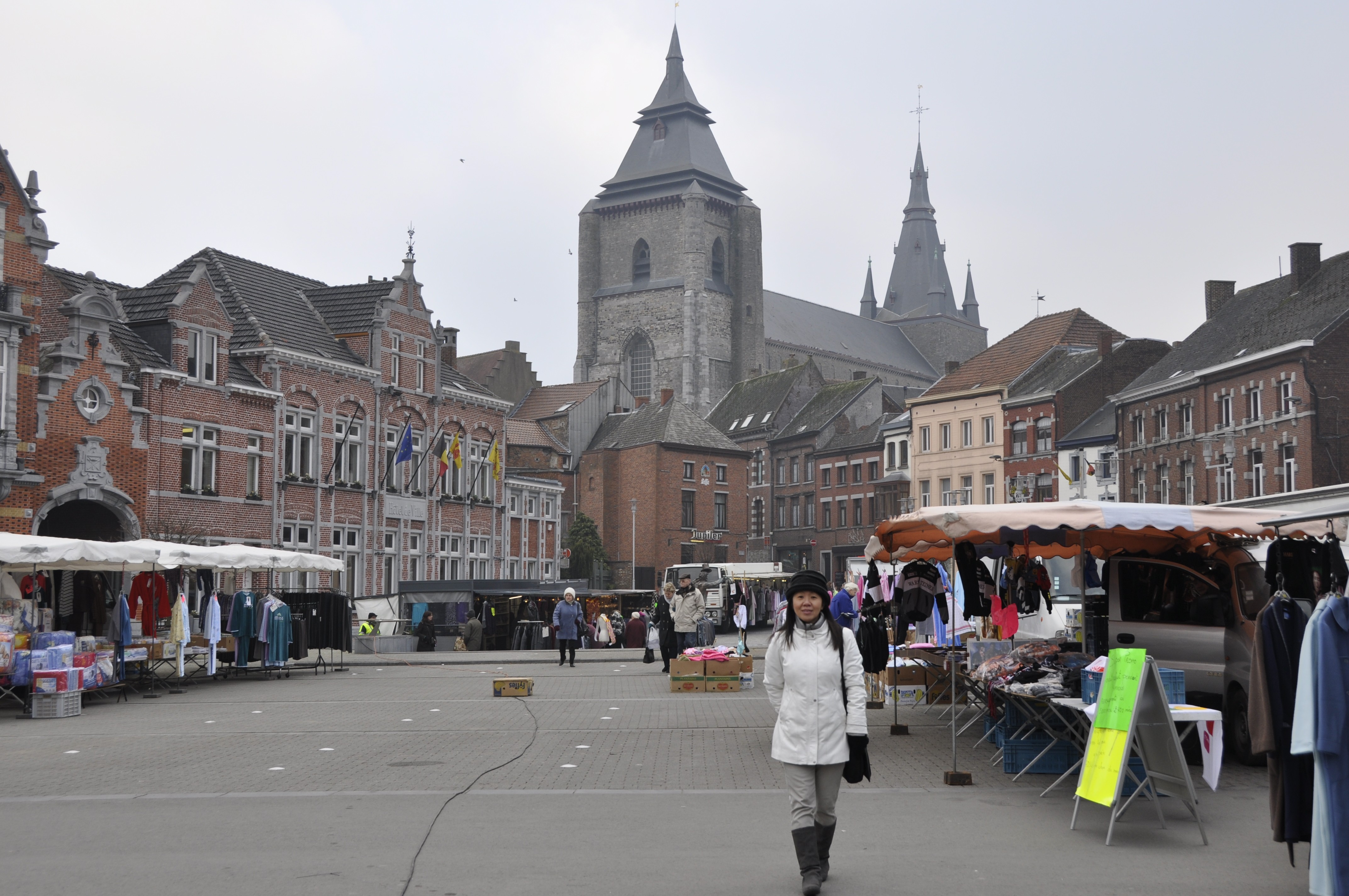
Social Sharing